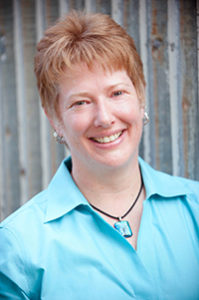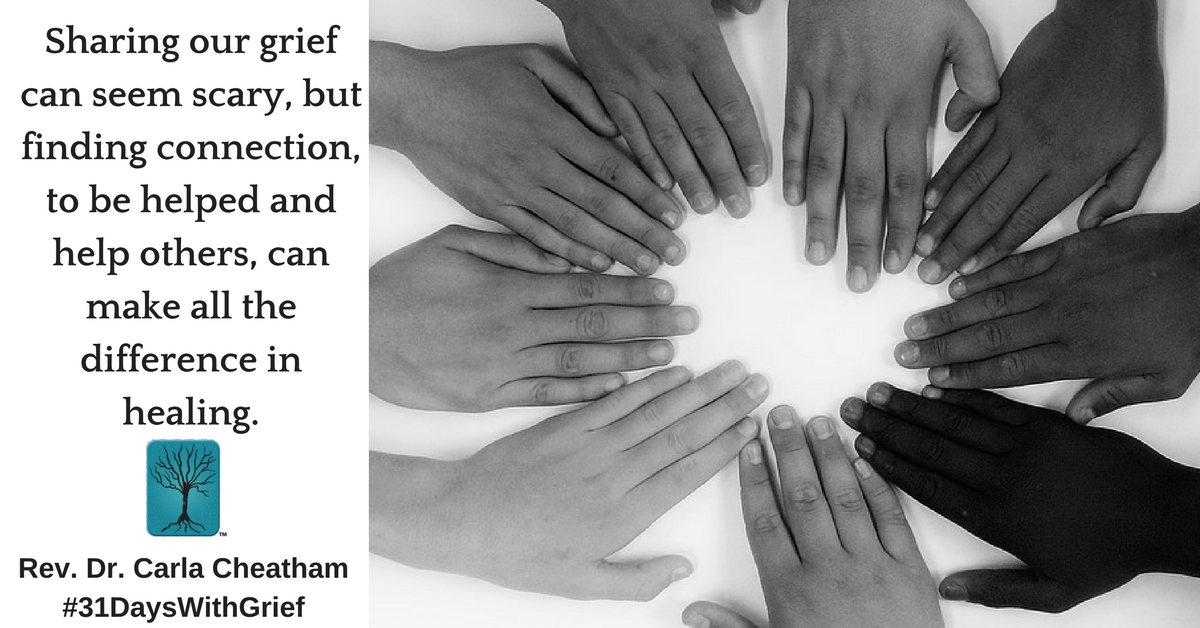Thirty One Days of Walking with Grief: Others’ and Our Own
Day 4–Finding Safe Space
This is a month-long series to support persons grieving and those who love them. It includes content from “Sharing Our Stories: A Hospice Whispers Grief Support Workbook” available through Amazon and wherever books are sold.
In the last post, I encouraged you to find safe spaces to be vulnerable and share your grief. I get it that this can be easier said than done.
When we’re exhausted from the mental and emotional strain of mourning, which also drains our bodies and brains of energy stores, having the bandwidth to go on such a search seems impossible.
Whatever type of grief we are walking with—death, illness, the end of a relationship, or another type of loss—we often find that support is readily available in the beginning. Folks show up, offer condolences and shoulders and hugs, bring practical support and leave Facebook messages. Colleagues and neighbors and long-time friends may come to the funeral en masse.
But after the initial stages following a loss, life returns to normal—for them. They get to go home and back to their lives. They get to go back to their desk and resume work with a full head of brain cells unencumbered by the sub-routine of overwhelming grief that consumes the entire cache…I probably just made my techy friends cringe by botching that metaphor, but you get the idea!
After the last casserole dish has been washed and returned, now what? Friends and even loved ones can’t carry the griefs of all the people around them about whom they care. Their well of compassion can only last for so long before they, who aren’t living with the constant reminder of something having been ripped from them, move on while we are still drowning in sorrow.
Some may have more ability to walk with our pain than others. Even then, it is important to not drain any one individual source of support, since this is a marathon and not a sprint. Some may turn to a therapist for support, others a faith leader, many will turn to a spouse or other loved one or best friend.
Years ago, when facing a potentially fatal medical crisis, I waited 3 days to tell anyone. I wasn’t ready to answer questions for which I yet had no answers and I also needed time to process it on my own. When I finally called a trusted mentor, poured out in a tearful rush what was happening, and asked what I should do, she who had been through her own cancer journey said quietly, “Find safe spaces to cry.”
It was the single most important piece of wisdom I received during that several-month journey of fear and uncertainty. And so, I did. I contacted those friends whose boundaries I trusted and asked them to honestly tell me if they had space to let me call up when needed and come sit beside them with my head on their shoulder while they patted my head and let me cry.
Some did, some didn’t, and all were honored I asked. Those I did call upon and went to sit with respected my request to not try to fix me or talk me out of my feelings, to not try to chit chat, and to say nothing more than, “It’s going to be ok”, because at that time it’s what I needed to hear.
It was the best thing I ever did for myself.
I wrote about this process and even more ideas about finding and sharing our grief with others in the introduction to Sharing Our Stories: A Hospice Whispers Grief Support Workbook. It’s designed for persons to either walk through on their own or with a group.
Group work is powerful as we get the opportunity to not just be helped, but also help others merely by our presence, listening, and offering of camaraderie. While scary for some and seemingly weak to others, I would argue that any defenses persons have against group are merely that, defenses against vulnerability. Granted, groups may not be for everyone, but if anyone scoffs at the idea, or if you find yourself doing so, consider this:
The psychologist, Herbert Adler, wrote of the power of listening as analogous to hemodialysis, such that the pain of the speaker flows through the “compassionate equanimity” of the listening and comes back to the speaker dialyzed of a bit of the pain.
More than whiney people who need to get over it, grief groups offer safe space to speak and feel without being judged, without being given unsolicited advice, and without anyone trying to talk you out of your feelings or in any way try to alter your process.
Whatever you choose to do for your own journey of walking with grief, here are some suggestions of things to consider when choosing persons to ask to walk with you. They’re take from page 13 of the Sharing Our Stories workbook, ((c)2017 SCIE Publishing) and I hope you find them helpful.
“Look for persons who can:
- Protect your confidence
- Sit comfortably with you without needing words
- Feel comfortable providing a hand or a hug of comfort if needed/desired
- Listen only without giving feedback, opinions, advice, or trying to fix how you feel
- Be a place to safely bounce off thoughts and ideas without fear of judgment
- Listen and give feedback IF you do ask for that feedback
- Let this be about you and what you need, without inserting their own story unless requested
- Pray or meditate with or for you, if requested
- Other things I’ve missed ______________________”
One last option I’ll offer for sharing your story and finding support in hearing others is to share your personal or professional story of walking with grief on my HospiceWhispers website Forum, designed specifically for such sharing. You may share your story anonymously or you may share your name, whichever feels right. (Please remember, if sharing a professional story, to change the names and identifying details to protect privacy rights.)
Whatever is right and works for you, I encourage you to just find something. Hopefully, these tools and suggestions will be a starting point, even if they aren’t an exact fit. You deserve nothing less than love and support and safety to be exactly where you are.
May you have peace as your journey unfolds. I’m glad you’re on mine.
Carla
 Rev. Carla Cheatham, MA, MDiv, PhD, TRT has served hospices as a chaplain and bereavement coordinator. She’s the Section Leader for the Spiritual Caregivers Section of the National Hospice and Palliative Care Organization and an adjunct professor at the Seminary of the Southwest. Through her Carla Cheatham Consulting Group, Carla provides training and consulting for professional caregivers nationwide. She is the author of Hospice Whispers: Stories of Life and its companion volume, Sharing Our Stories: A Hospice Whispers Grief Support Workbook. Her next book, On Showing Up with Suffering: Others’ and Our Own, is set to publish in 2017.
Rev. Carla Cheatham, MA, MDiv, PhD, TRT has served hospices as a chaplain and bereavement coordinator. She’s the Section Leader for the Spiritual Caregivers Section of the National Hospice and Palliative Care Organization and an adjunct professor at the Seminary of the Southwest. Through her Carla Cheatham Consulting Group, Carla provides training and consulting for professional caregivers nationwide. She is the author of Hospice Whispers: Stories of Life and its companion volume, Sharing Our Stories: A Hospice Whispers Grief Support Workbook. Her next book, On Showing Up with Suffering: Others’ and Our Own, is set to publish in 2017.



Thank you for the words! I lost my dad suddenly two days before Christmaas. It was a tragic accident and I am really struggling with how it happened. It was just around the corner from my house too. I have to drive by the area everytime I leave my house. I am also struggling with the fact that he died from a car accident because I lost my mine in a car accident 6 years ago. I also lost my sister in a car accident in 1993. I am the only one left as I have no other siblings. Just can’t wrap my mind around the how and why of it all. Everyone has been so great for support and prayer but like you said they have returned back to work and their lives as they should. I’m sitting here with my thoughts and memories. Just not understanding why he had to die the particular way he did. I know we aren’t meant to understand the things of this world but it’s hard to not question. I know that God if faithful and He will get me thru this valley. Thanks so much for the wonderful words!
Cindy, what a crazy-making combination of grief and loss and trauma. When there are more questions than answers, yes, it’s incredibly hard. When we can make sense of things, it seems a little easier. Unanswered questions can keep our minds reeling. Some believe that questioning God is not allowed while others believe that it is. Whatever feels right to you as you work to come to terms with your dad’s sudden death, and as you drive by the vivid reminder daily, I trust you will find your way, but I’m deeply sorry that you’re having to do so, yet again. Much love and peace to you, and many prayers. I hope this series of daily posts throughout January, or anything else I write, may be of some comfort.
With you in spirit,
Carla